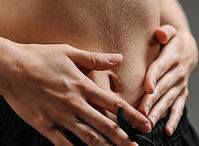
non-motor symptoms in PD
Parkinson's disease (PD) is often considered a condition that only affects movement; however, most people with PD also experience a variety of other symptoms known as non-motor symptoms.
These symptoms may not be visible to others; however, they are very common and can sometimes be more bothersome and impact daily activities than motor symptoms.
Non-motor symptoms—such as loss of smell, constipation, or depression—can appear years before a formal Parkinson's diagnosis is made. It is critical to recognize and address symptoms that are affecting your life. Be sure to discuss any changes with your medical team, as many of these symptoms can be managed with appropriate treatment.
Non-Motor Symptoms of PD
Symptoms Vary
-
Eye problems
-
Sleep problems
-
Low blood pressure
-
Skin and sweating problems
-
Pain
-
Urinary incontinence
-
Sexual dysfunction
Key strategies for maintaining well-being with PD include get plenty of rest, eat a healthy diet, exercising regularly, have routine medical checkups, be social, and enjoy activities that you love to participate in.


Mental Health
People with Parkinson's may face various mental health challenges in addition to their physical symptoms. Focusing on mental health is essential for the well-being of individuals with PD, their families, and caregivers.
-
Dementia
-
Cognitive changes
Digestive System
Digestive system problems are common in Parkinson's disease and can include symptoms such as constipation, nausea, and delayed gastric emptying (gastroparesis). Managing the diet, staying hydrated, and working with healthcare professionals can help improve digestive health and overall well-being.
-
Constipation
-
Nausea
-
Trouble swallowing (or difficulty swallowing)

